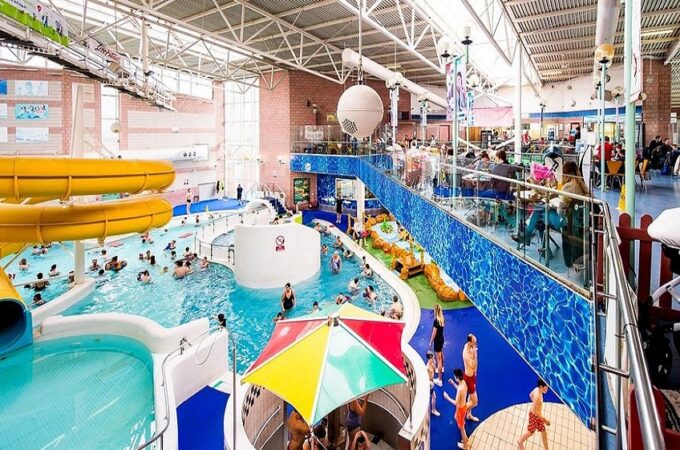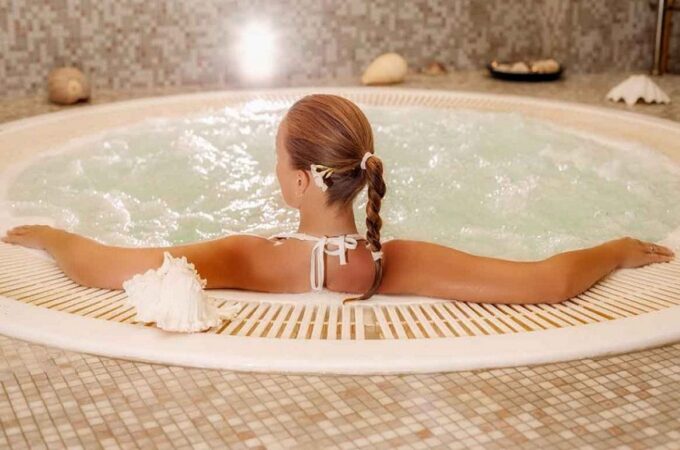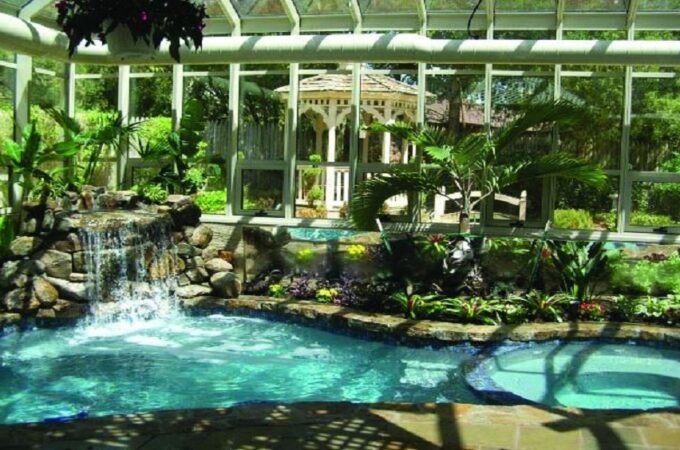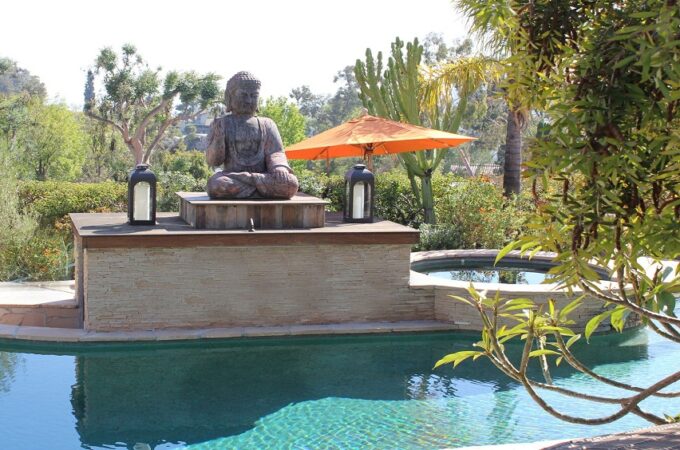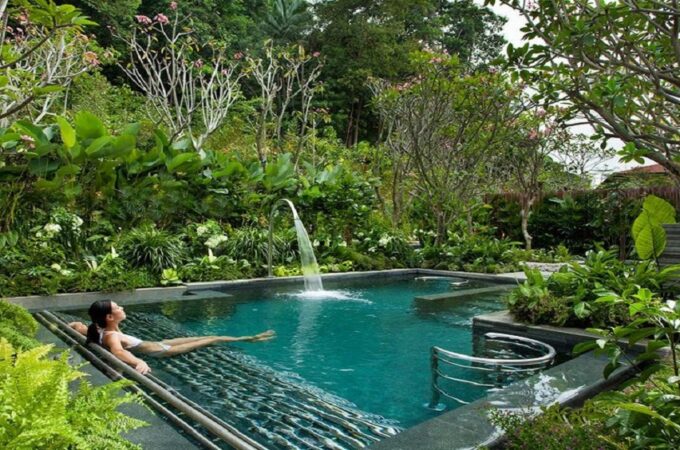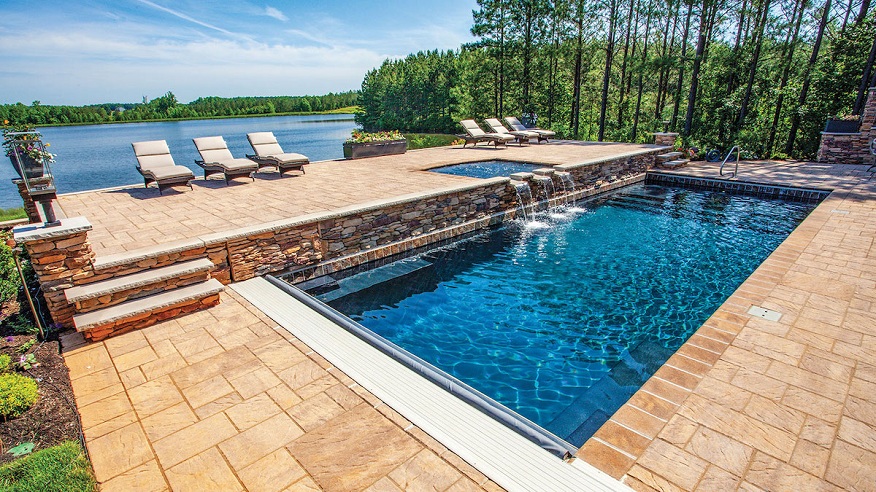
Fibreglass vs Vinyl Pools: Which is the Superior Choice?
Choosing the right type of pool for your home is a significant decision that will impact both your property’s value and your lifestyle. Two popular options are fibreglass and vinyl liner pools. Let’s look closely at the strengths and weaknesses of these two types of pools to help you make an informed decision.
Fibreglass Pools: Advantages and Disadvantages
Fibreglass pools are carefully crafted in a state-of-the-art factory, where they are moulded into a single, seamless, bowl-shaped structure. This ingenious design ensures superior durability and strength. Once completed, the pool is carefully shipped to your desired location and expertly installed in your yard. With its sleek and modern aesthetics, a fibreglass pool is not only a functional addition to your home, but also a stunning centrepiece that will transform your outdoor space into a tranquil oasis.
Advantages of Fibreglass Pools
Ease of Installation: Fibreglass pools offer a quicker and more convenient installation process when compared to traditional concrete or vinyl liner pools. With their pre-formed structure and seamless design, fibreglass pools eliminate the need for lengthy construction time and complex installation procedures. This not only saves valuable time but also ensures a smooth and hassle-free experience for pool owners. So, if you’re looking for a pool that combines efficiency, durability, and convenience, fibreglass pools are the perfect choice for you.
Low Maintenance: The smooth surface of fibreglass pools, combined with their non-porous nature, prevents the accumulation of algae and bacteria, resulting in a hygienic and low-maintenance swimming environment. This not only makes them relatively easy to clean but also ensures a pristine and enjoyable swimming experience for pool owners.
Durability: Fibreglass pools are known for their exceptional durability and remarkable resistance to wear and tear. With their strong and resilient construction, they are designed to withstand the test of time, offering a long and reliable lifespan. This makes fibreglass pools an excellent investment, providing homeowners with years of enjoyment and peace of mind.
Disadvantages of Fibreglass Pools
Limited Customisation: Given that these pools are pre-built, it is worth noting that your options regarding size, shape, and depth may be somewhat limited. However, this can actually be advantageous as it ensures a well-designed and standardised pool that is both aesthetically pleasing and functional. By selecting a pre-built pool, you can still enjoy the benefits of having a pool without the lengthy construction process and associated uncertainties.
Cost: Fibreglass pools, while initially more costly than vinyl liner pools, offer numerous long-term benefits that make them a worthwhile investment. With their durable construction, low maintenance requirements, and superior resistance to staining and fading, fibreglass pools provide an extended lifespan and enhanced value for discerning pool owners..
Vinyl Liner Pools: Advantages and Disadvantages
Vinyl liner pools, which are constructed on-site, offer a versatile and customizable option for pool enthusiasts. These pools typically feature a sturdy frame made from metal, plastic, or wood, ensuring durability and longevity. The custom-fitted liner, specifically tailored to the pool structure, not only enhances the aesthetic appeal but also provides a smooth and comfortable surface for swimmers to enjoy. With their ability to be tailored to individual preferences, vinyl liner pools offer a unique and personalised swimming experience.
Advantages of Vinyl Liner Pools
Customisation: Vinyl liner pools, known for their versatility, offer unlimited design possibilities. With the ability to customise the shape, size, and depth to your liking, you can create a truly personalised swimming experience. Whether you prefer a sleek rectangular pool or a curvaceous freeform design, vinyl liner pools provide the flexibility to bring your vision to life.
Comfort: The soft and smooth texture of vinyl liner pools not only makes them comfortable to touch, but also provides a gentle and relaxing experience for swimmers. This particular feature is especially beneficial for children and elderly individuals, as it ensures a safe and enjoyable swimming experience. From the gentle touch of water on your skin to the assurance of a consistently pleasant swim, vinyl liner pools provide a unique and comforting environment for swimming.
Cost: In general, vinyl liner pools tend to be more cost-effective when it comes to installation expenses in comparison to fibreglass pools. Vinyl liner pools offer a flexible and durable option that can be tailored to fit various shapes and sizes, making them a popular choice among homeowners looking for a budget-friendly solution without compromising on quality. On the other hand, fibreglass plunge pools perth are known for their sleek and smooth finish, requiring less maintenance in the long run. However, due to the manufacturing process and materials involved, fibreglass pools may come at a higher initial cost.
Disadvantages of Vinyl Liner Pools
Maintenance: Vinyl liners, although durable, can be susceptible to punctures, which may result in leaks. It is important to regularly inspect and maintain the liner to ensure its longevity. Additionally, the average lifespan of a vinyl liner is typically between 7 to 15 years, after which it will require replacement.
Long-term Cost: While vinyl liner pools have a lower initial cost compared to other types of pools, it is important to consider the ongoing repair and replacement costs associated with them. Over time, these costs can add up, making vinyl liner pools more expensive in the long run. Proper maintenance and timely replacement of the liner can help mitigate these costs and ensure the pool’s longevity.
Conclusion
When it comes to choosing between fibreglass and vinyl liner pools, there’s no definitive right or wrong answer—it’s all about preference. Both options have their distinct advantages and disadvantages. Fibreglass pools offer ease of installation, low maintenance, and durability, but at a higher initial cost and with limited customisation. Vinyl liner pools, on the other hand, provide greater flexibility in design and a lower initial cost, but require more upkeep and have associated long-term costs. Ultimately, the choice depends on what best aligns with your budget, aesthetic preferences, maintenance capabilities, and envisioned pool use. With careful consideration, homeowners can select the type of pool that best suits their needs, guaranteeing years of enjoyment and relaxation.

